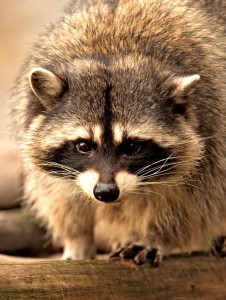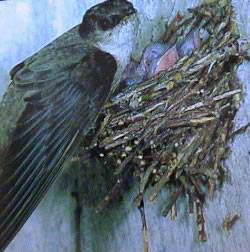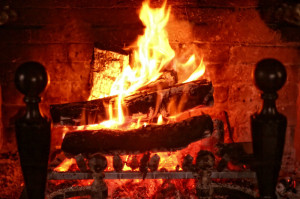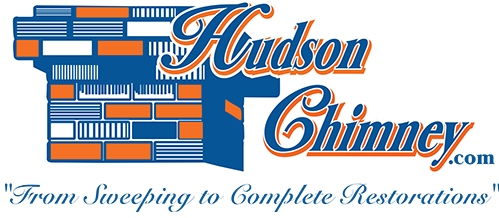by Mark Hudson | Nov 14, 2015 | Animals in chimney
Hearing strange noises coming from your chimney is a sure sign that birds or other animals like squirrels or raccoons have mistaken your chimney for a tree and moved inside for the winter. If you have a family of birds or animals living inside your chimney, you should never attempt to smoke them out by lighting a fire. This can result in severely burning or killing the animals and creating an even larger problem. Our staff at Hudson Chimney is used to dealing with these critters invading chimneys, and we can safely remove them to allow your fireplace and chimney to be used without problems. We would like to tell you more about how to deal with birds and animals in your chimney by sharing with you some information from Chimneys.com.

BIRDS
Typically, birds will build nests on the smoke shelf or just above the damper, but some types of birds build their nests on the sides of chimney liners. You can even have multiple bird nests inside your chimney at one time. The biggest problem you can have with a bird nest in your chimney is that the nest can block your flue, and this can lead to carbon monoxide being forced back into your home. As nesting materials are highly flammable, there is also the risk of a chimney fire. Birds also carry diseases like histoplasmosis, which can cause blindness. If you have migratory birds such as chimney swifts living in your chimney, it is illegal to have these birds removed. You will have to wait until the late spring when they leave their nests to have these nests taken away from your chimney.
SQUIRRELS
Squirrels build nests by packing them very tightly, which makes them difficult to remove. Hudson Chimney has heard reports of chimney sweeps needing hours to remove nests that were over 15 feet long! Not only do the nests of squirrels block the flue of your chimney, but squirrels themselves can open up the damper and enter your home to cause even more damage.
RACCOONS
If you have a raccoon in your chimney, we strongly recommend that you leave its removal to professionals and do not attempt to get the animal out yourself. Raccoons can be very aggressive and will bite you. They also carry diseases like rabies and roundworm.
HOW DO I KEEP BIRDS AND ANIMALS OUT OF MY CHIMNEY?
The best way to keep these critters from taking up residence in your chimney is to have a good quality chimney cap installed at the top of the chimney. Be sure the cap is equipped with metal mesh siding, and you will also want to choose a cap constructed from copper or stainless steel as birds and animals can tear up caps made from aluminum.
Heard sounds of birds or animals coming from your chimney? Contact us at Hudson Chimney as soon as possible to ask for our help on removing these critters safely.
by Mark Hudson | Apr 29, 2015 | Chimney Swifts
If you have ever heard chattering, fluttering, and other noises coming from your chimney as the weather gets warmer, there is a good possibility that chimney swifts have taken over your chimney as their new home. These migratory birds are named for their habit of nesting in chimneys. Once a family of chimney swifts has nested in your chimney, it is illegal to remove them. Some of our customers choose to share their chimneys with these birds every year. However, Hudson Chimney is often asked how to prevent chimney swifts from setting up their summer homes in their chimneys, and we recommend installing a chimney cap with mesh siding to keep these birds from ever entering your chimney. We would like to tell you more about chimney swifts and what you can do about them nesting in your chimney.

What exactly are chimney swifts?
According to the Driftwood Wildlife Association’s project to promote the conservation of chimney swifts, they are fascinating, adaptable birds who learned to nest and roost in chimneys when their native habitat of large hollow trees in forests of North America were cut down. The birds make their return from South America after their wintering is over, and as they are migratory, they tend to return to the same nesting area. However, if a family of chimney swifts does nest in your chimney, you should be aware that these birds are protected by the Migratory Bird Treaty Act, and removing or destroying nests with eggs or young can result in fines and penalties.
What should I do if I would like to share my chimney with chimney swifts?
On the Driftwood Wildlife Association’s website, the article “Being a Good Chimney Swift Landlord” offers invaluable tips for those who do not mind sharing their chimney with these birds. Because they do only nest during the summer season, this article recommends having your chimney swept in mid-March to have all of the creosote build-up removed. An abundance of creosote deposits makes it impossible for the chimney swifts to build their nests to the walls without danger of falling. This article also stresses the importance of chimney swifts being protected by federal law and warns against chimney sweep businesses who illegally remove chimney swift nests and eggs. Be wary of companies who advertise “bird removal,” as this is a blatant violation of state and federal laws that protect migratory birds. Instead, choose a trusted company like Hudson Chimney to perform your annual chimney sweep. Even though the noises of the baby birds chirping for food can be shrill and annoying, they will not last forever. Remember that this is only temporary, and after this short period, you will practically not even realize the chimney shifts are there. However, be sure your damper is completely closed to keep them from flying into your house.
What should I do after the chimney swifts leave in the fall?
The nests of these birds are small, cup-shaped constructions of small twigs glued to chimney walls by the saliva of the chimney swifts. Too small to be a fire hazard, you will still need to contact Hudson Chimney to remove the nest after they leave in the fall. This is needed to remove bird parasites. Additionally, as chimney swifts tend to return to the same nesting spot, you do not want them to try to use the old nest as it will be unstable and probably collapse.
What if I want to prevent these birds from nesting in my chimney?
A good quality chimney cap that is equipped with mesh screening is the best prevention against chimney swifts moving into your chimney. Hudson Chimney sells and installs a variety of different caps, and we can advise you on the best time to install your new chimney cap.
Want to know more information about chimney swifts? Contact Hudson Chimney to learn more about these birds as well as about chimney cap installation.
by Mark Hudson | Dec 23, 2013 | chimney maintenance, fire safety, fireplaces
Say Goodbye to Your Chimney Blockages
Is your home’s safety one of your top priorities? Do you want to save yourself from spending thousands of unnecessary dollars on expensive repairs from damages you could have prevented? Well, we’ve got the answers that you’re looking for!
Since it’s the Holiday season, you are busy preparing your house for the coming festivities. This is also most likely the only time of the year when you get to check how your chimney is doing. Most of the problems of homeowners have something to do with chimney blockages. Here at Hudson Chimney the safety and well-being of our clients always come first, we want to give you a few trade secrets on identifying the culprits of these very common chimney blockages.

Has your fireplace started pouring smoke into your living room? You may have a blockage.
Creosote
You have probably heard this being mentioned in TV commercials and promotional ads. Creosote is basically the Diva and superstar amongst all the common chimney blockers. If you don’t know what it is, it’s a particular by-product of burning wood on your chimneys. It builds up on the sides of your flue system. If left unnoticed, Creosote may accumulate and this can definitely lead to flue (or house) fires. It is highly flammable.
Debris
Things such as trash, tree foliage, leaves and other debris both natural and otherwise are also one of the most common causes of blockage. You would be surprised what we find stuck on people’s chimneys during regular inspections. Most homeowners are barely aware of what gets stuck up their chimneys. But without a chimney cap, the wind can deposit lots of debris into your chimney.
Animals
Small birds, raccoons, squirrels and animals and bugs are also one of the famous chimney blockers out there. Not only do they cause problems due to that blockage, but most of these animals (those unable to get out) create a nasty and putrid smell that can enter and spread to your homes.
What we can advise everyone to do to save more money and prevent further damage from happening is to get your chimneys inspected and swept often. You can also opt to get a chase cover or a chimney cap. Hudson Chimney is well updated with the technology that would ensure your safety and would help you from spending too much. So don’t wait until your chimney gets clogged, give us a call now and we’ll gladly help you out!
by Mark Hudson | Aug 22, 2013 | chimney maintenance, fire safety
What to Do When You Smell Chimney Odors
Having a chimney can be a great addition to a home but the smells they sometimes emit can be extremely unpleasant. There are many different things that may cause chimney odors, from animals living within the chimney to creosote that has built up on the chimney walls. Whatever the cause, there are a few things that every homeowner should do if they notice a strange and unpleasant odor coming from their chimney. Anything that can cause an odor can be identified with an inspection.
As soon as noticeable odors start coming from the chimney, it is important to stop using the chimney immediately. There are some causes of chimney odors, such as creosote, that can actually cause a fire hazard in addition to a smell. Until the cause of the odor has been determined, it is best to avoid the risk of a flame getting out of control by ceasing to use the fireplace at all. In many cases, the problem will have a quick fix and a fire can be enjoyed again soon.

Chimney odors can be caused by several different sources. An inspection can help you identify the problem.
The next step is to do a basic cleaning of the fireplace and the surrounding area. For example, make sure that there is not any excess ash or debris inside of the fireplace. A small amount of ash is fine for purposes of insulation, but too much can be dangerous as well as unpleasant. In addition, debris could be an indicator of what is causing the issue. For example, moisture could cause a smell but it could also cause brick and clay to fall from the chimney.
If a smell starts coming from the chimney, stop and look at what is being burned in the fireplace. Only material that is intended for the fireplace, such as coal or properly seasoned wood, should be used to make a fire. Burning other material may be the source of the smell that comes from the fireplace or chimney. Not only will it smell bad, but this could also cause potential damage to the chimney as well as a dangerous flame.
There are a few simple habits that every homeowner should establish in order to keep their chimney from producing unwanted odors. Perhaps the most important is making sure that the damper is closed when the fireplace is not in use. This prevents normal chimney odors from blowing into the house and through the air of the living space. This is a simple fix that may take care of unwanted odors for good.
If the problem is not immediately apparent or if it requires a thorough cleaning of the chimney, it is important to call a professional chimney sweep. A chimney sweep will have the tools and the know how to take care of the issue quickly, safely, and efficiently. Trying to clean the chimney can be dangerous for an inexperienced person, both because of potential animals or chemicals and because of the necessity to climb on the roof. To avoid the problem in the first place, consider having an annual cleaning by a chimney sweep.
If there is an unpleasant smell coming from the chimney, the safety of the home and everyone in it should be the first priority. Until the cause of the odor can be determined and fixed, stop using the fireplace and chimney immediately. The problem may require a simple solution, such as closing the damper, or it may be more complicated. In this case, contact a professional chimney sweep instead of attempting to make it a DIY project.




